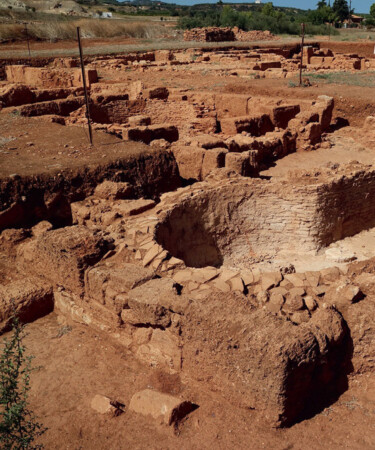Researchers have uncovered a Roman-era wine shop at a 1,600-year-old site in the ancient city of Sicyon, located in what’s now southern Greece. Scott Gallimore, an archaeologist at Wilfrid Laurier University in Canada, and Martin Wells, a classics scholar at Austin College, presented these findings at the Archaeological Institute of America in Chicago earlier this month, according to Smithsonian Magazine.
Upon examining the site, the researchers discerned that the wine shop was likely destroyed during a “sudden event” such as an earthquake or extreme weather, which collapsed the structure and caused the owners to evacuate. They also found signs of commerce including marble tabletops, broken pottery, and about 60 bronze coins across the space.
“This seems to indicate that they were being kept together as some type of group, whether in a ceramic vessel or some type of bag,” Gallimore speculates. “When the [shop] was destroyed, that container appears to have fallen to the floor and scattered the coins.” The coins helped distinguish which time period the shop was likely thriving in, as many of them were made during Constantius II’s reign, which lasted from 337 to 361 C.E.
Studies of the site also revealed that the shop might have sold olive oil in addition to wine. Evidence of pips from Vitis vinifera grapes was found, as well as an area that housed tools to press grapes or olives. Despite this insight, researchers have been unable to confirm what type of wine the shop might have sold.
Though this shop might have seen an untimely demise, we’re pretty sure the locals quickly found another place to buy wine to keep up with their, ahem, indulgent lifestyle.
